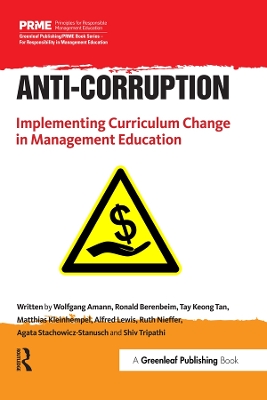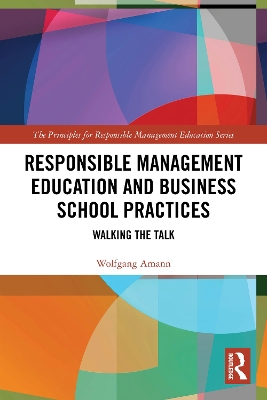The Principles for Responsible Management Education
2 total works
Anti-Corruption
by Wolfgang Amann, Ronald Berenbeim, Tay Keong Tan, Matthias Kleinhempel, Alfred Lewis, Ruth Nieffer, Agata Stachowicz-Stanusch, and Shiv Tripathi
Successful businesses are built on trust. Employees and colleagues need to trust one another and they need to deserve and receive trust from customers and suppliers. Anti-Corruption provides resources for building trust through the implementation of comprehensive guidelines on how to professionalize ethics and anti-corruption education worldwide in a variety of classroom settings. It is written and tested by highly experienced program directors, deans and professors, in how to adopt, adapt and develop best teaching practice. It highlights successful patterns, details illustrative case studies and offers clear, hands-on recommendations.
Anti-Corruption enables business schools, management-related academic institutions, and Executive Training Programs to embed curriculum change quickly to achieve positive outcomes. It enables degree programs and executive education programs to achieve global standards that will be widely followed.
Responsible Management Education and Business School Practices
by Wolfgang Amann
Beyond researching and teaching responsible management, business schools should aspire to walk the talk. They ought to become role models and responsible organisations themselves. Focussing on the original UK and Ireland institutions who committed to this initiative formally by becoming signatories, this book considers how this role-modelling behaviour has been applied.
Based on a number of personal interviews with PRME initiative leads, this books provides a two-dimensional framework based on structure and motivation as critical levers for progress in responsible management organisational practice. It offers unique recommendations on how to better frame and improve organisational practices in PRME member schools. Specifically, the book: 1. Sheds light on how to bring PRME to life beyond teaching and research practices; 2. Provides recommendations on how dean and PRME initiative leads in signatory institutions can better understand their current organisational practices and prepare improvements over time; 3. Energises and catalyses research on best organisational practices based on a clear research agenda.
This book is relevant to all stakeholders of modern management education, in particular business school deans, university presidents, program directors, PRME leads and non-academic leaders in business schools, such as COOs or managing directors.

